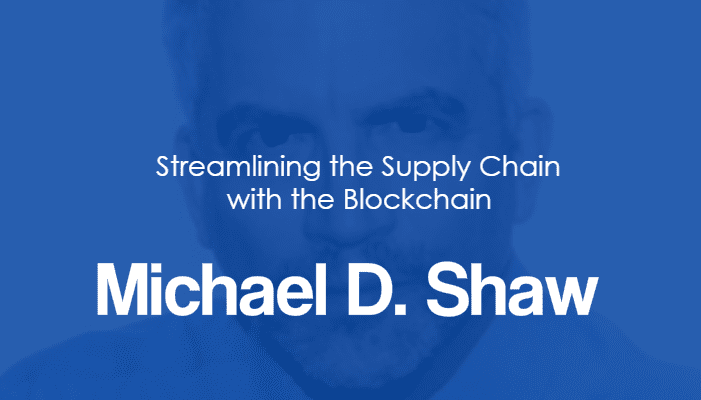The attempt to shorten the supply chain is every retailer’s goal. It is the less-is-more equivalent of eliminating as many links as possible, until the chain itself is a symbol (?) of unity between or among the most indispensable parties to a transaction.
Conventional technology cannot, however, remove every unnecessary link, reduce or erase every inefficiency, and reconfigure the chain to be as simple yet strong—as tiny yet tensile—as retailers want.
Blockchain technology is the exception to this rule, because it is a platform whose complexity ensures security, on the one hand, and whose clarity favors efficiency over expensiveness, on the other; which is to say the blockchain’s sophistication is its own safeguard against the threats common to traditional forms of e-commerce, while its very nature enables users to streamline operations.
For SupplyBloc, which makes the above scenario a reality, the benefits accrue to retailers and consumers alike. The blockchain is, indeed, a benefit unto itself. It narrows the points of contact between a company and its customers. It gives the small business owner, whether he is a man with a surplus of intellectual capital but a poverty of financial capital, or a woman with a scarcity of nearby partners but a wealth of would-be buyers worldwide; it gives either party a voice—an actual means of communication—that makes real the promise of technology: to expand opportunities, economize costs, and create economies of scale for entrepreneurs and established enterprises around the globe.
Think of the blockchain as not only a virtual version of a physical chain, but as the centerpiece of a vast network. Think of it as the ultimate processor, with a minimum of components and the best point-to-point construction of its kind, where the circuitry—with its soldered lines of silver and bits of copper—becomes luminescent. Think of this plane set aglow by the blockchain. Think of this grid as a series of pathways, connecting merchants and consumers through the lights of new technology.
Such is my attempt to describe the dynamism of the blockchain, because only a platform this flexible—only a solution this profound—can accommodate so many industries at the same time. (I know of no other way to describe something this revolutionary, while I also revolt against a word that continues to lose its meaning through overuse and misuse. But this approach is true to its word: a revolutionary way to apply tracking, transparency, and unity to supply chain management.)
More important than my choice of words is freedom of choice. For example: When you have your own token to expedite transactions within this environment, when you can use that token to incentivize customers, when smart contracts are clear and constant, when transparency facilitates the flow of information, when the blockchain ledger is immutable, when tracking is total and the totality of every transaction is available for retailers to audit—when all of these things are a reality, and they are, we have reason to celebrate.
We have reason to be grateful, too, because more retailers beget more freedom for everyone. Choice is, after all, irrelevant if your sole freedom is to either buy more of the same or buy nothing at all. Choices are, in contrast, a chance to shop within a global marketplace.
Such a choice is permissible, because blockchain technology is a source of innovation. It is inclusive to any retailer who chooses to use this platform, and exclusionary to no user regardless of region or income, because it too popular to restrict and too conclusive a system to corrupt.
It is, in other words, free of the obstacles that can obscure the supply chain. It is free of the opaqueness that leaves too much to chance, while leaving retailers with no chance to access the real-time information they have a right to receive and deserve to see. It is free, too, of the delays and departments, whose existence seems to be nothing more than an instrument of delay. It is, in short, what it should be: a method of shortening—and strengthening—the supply chain.
Now is the time, then, to adopt blockchain technology to streamline the supply chain. The timing is sound, just as the sound you hear—rational in its tone and relevant in its timbre—represents this moment in time. We would, therefore, be remiss if we were to miss the significance of this platform.
Let us commit ourselves to staking a claim on behalf of this revolution in retailing. Let retailers, in turn, confirm the sincerity of their commitment by having them reveal their preference for a platform that works, period.
Let us welcome a new era of security and transparency, which enables more companies to succeed and empowers all consumers to thrive.

































